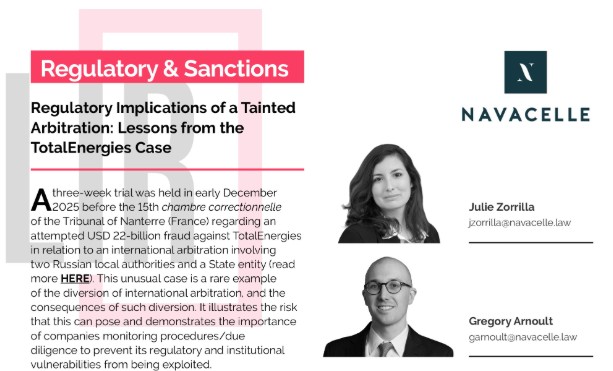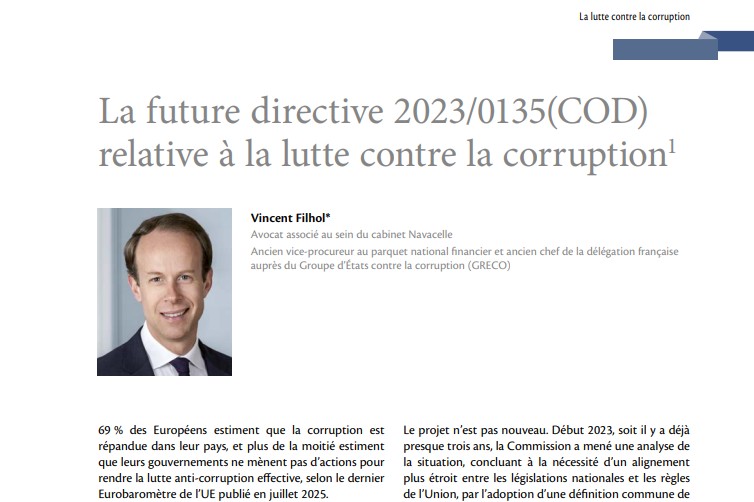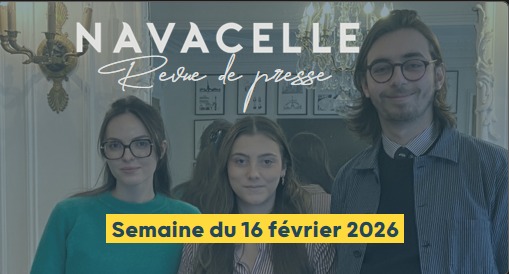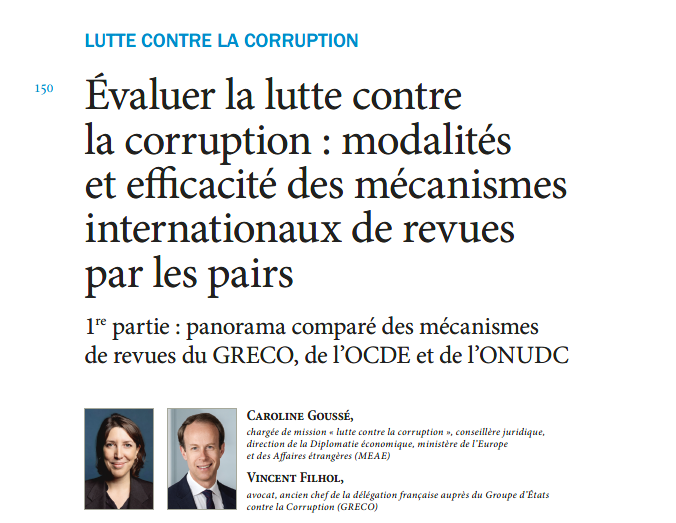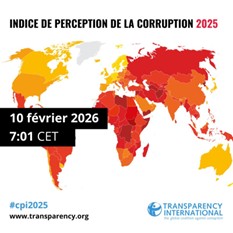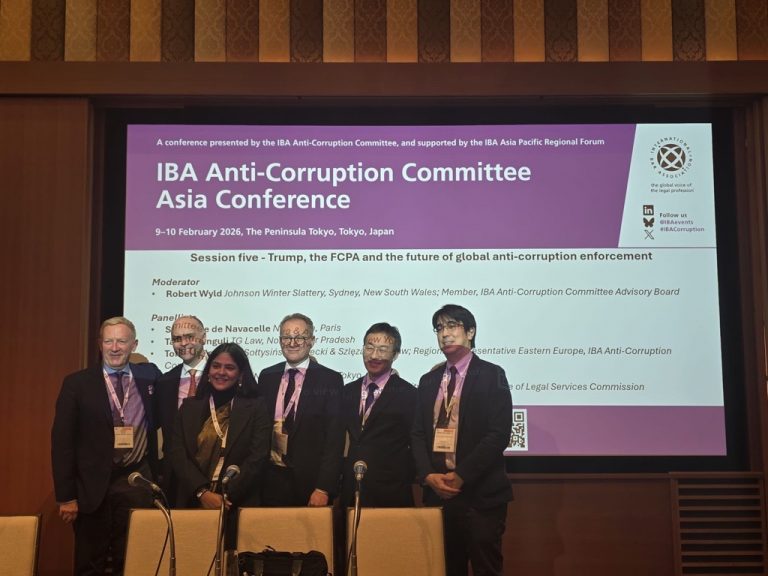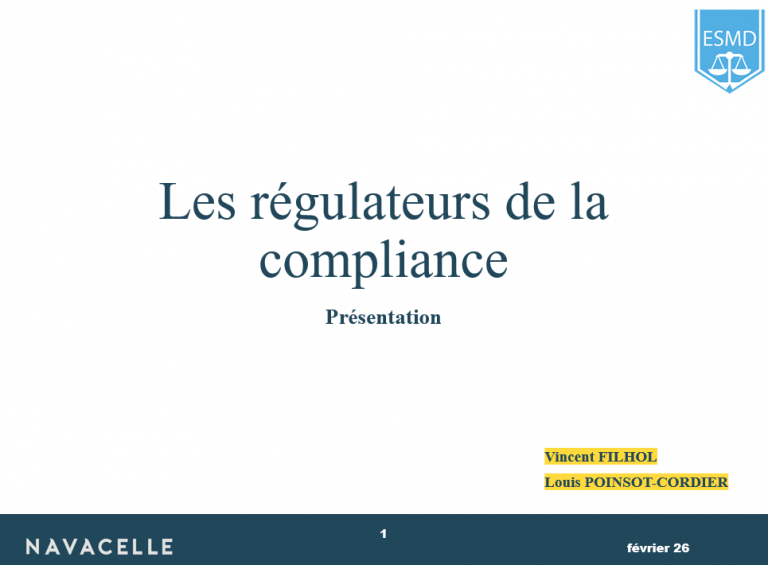In a decision of 18 December 2019, the French Supreme Court (“Cour de cassation”) clarified the contours of the presumption of money laundering, which was established by the law of December 6, 2013 [1] to fight money laundering more effectively.
During a custom check, a man driving a car registered in Slovenia and travelling in the direction Spain-France was questioned about the contents of his vehicle. While he claimed not to be carrying more than 10,000 euros in cash, almost 30,000 euros hidden in the car were found.
He was sued and convicted for transferring money without a customs declaration and money-laundering. The lower Court and the Court of Appeal applied the presumption of unlawful origin of the funds stated in Article 324-1-1 of the Criminal Code, according to which “the property or income is presumed to be the direct or indirect proceeds of a crime or offence if the material, legal or financial conditions of the investment, concealment or conversion operation have no other justification than to conceal the origin or beneficial owner of such property or income”. The judges considered in particular that the defendant, whose statements have changed several times, did not provide a credible justification of the origin of the funds to rebut this presumption. The Court therefore considered that the material conditions of the transaction have no other explanation than to conceal the origin or the beneficial owner of the sums discovered.
In a decision of December 18, 2019, the criminal division of the Cour de cassation validated this analysis [2]. The judges emphasized that maneuvers used by the defendant could be interpreted as an intention to conceal the origin or beneficiary of the cash discovered. The Court, making an extensive interpretation of the presumption of Article 324-1-1 of the Criminal Code, also recalled that it is unnecessary to identify or to characterize the initial crime or offense that gave rise to the money laundering operation.
I. The unnecessary characterization of an original crime or offence
The defendant reproached the Courts not to have identified and characterized the original offence. It is however well known that the subsequent offence of money laundering is independent of the original offence. Indeed, the presumption set up by Article 324-1-1 only requires establishing a specific operation such as investment, concealment or conversion.
Hence, according to the Cour de cassation, a mere characterization of the components of money-laundering is sufficient to establish the offence, regardless of the absence of constituting facts required for the prosecution of the original offence [3]. The provision of Article 324-1-1 thus allows to limit the investigations and focus on combating money laundering rather than on the sanction of the original offence [4].
In another recent decision, the criminal division held the same reasoning, specifying that it is not important that “the perpetrators of [original] offences are not known and that the circumstances of the commission of the offences have not been fully determined” in order to establish an offence of money laundering and tax fraud [5] . The commented decision thus confirms the position of the criminal division of the French Supreme Court, which already had the occasion to apply a presumption on similar cases implicating hidden cash transfer from a country to another [6].
II. The necessity of a credible justification of origins of the funds to reverse the burden of proof
In the present case, the Court recalls that the defendant must prove otherwise to reverse the presumption of the illicit origin of the funds. The burden of such proof therefore lies on the defense and not on the prosecution. In this matter, the defendant who claimed that the funds had a lawful origin, produced various outdated documents, related to a real estate sale. The Court noting inconsistencies in the defendant’s statement, concluded that “the material conditions of the transaction have no justification other than to conceal the origin or the beneficial owner of the sums discovered”.
According to the French public prosecutor J. Goldszlagier, the presumption is more than a mean of evidence. Indeed, in this decision the criminal division of the Court applies the presumption of Article 324-1-1 to support the generic illegality of the proceeds of the offence [7].
III. An extensive interpretation of the presumption that could be tempered
The Courts justify the application of this presumption in view of the difficulty of proving money laundering operations in the context of very complex and obscure schemes.
The solution is however viewed as severe by some commentators [8], especially, as in the present case, with regard to an operation of concealment. The concealment of large sums could in fact be explained by the intention to avoid making a customs declaration concerning these funds. Thus, a failure to comply with the various reporting obligations in customs or tax matters may at the same time be considered as a concealment within the meaning of Article 324-1-1. The presumption of Article 324-1-1 could thus potentially transform any concealment into money laundering if the person questioned of the origin of the funds is unable to demonstrate otherwise.
